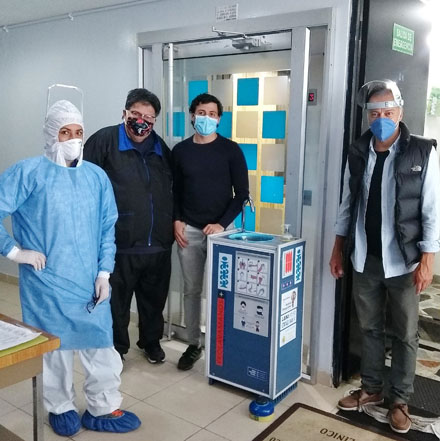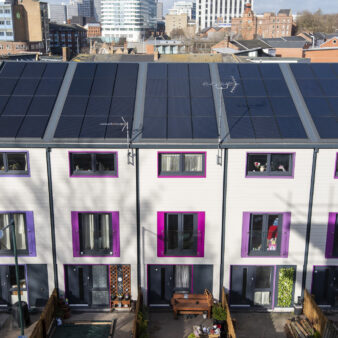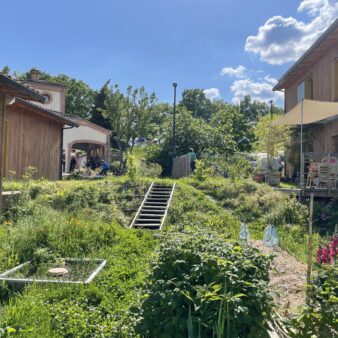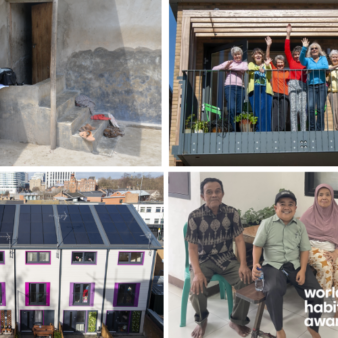
We recently shared stories of how residents, community-based organisations and NGOs have taken action to deal with COVID-19 in informal settlements. They have often been the ones supporting households with the challenges they are facing – such as a loss of income and poor access to water and sanitation.
We asked to hear from other communities around the world – here are some of the responses.
Asunción, Paraguay
TECHO, along with other civil society organisations and academics who make up the Red de Apoyo a Asentamientos Precarios (Support Network for Precarious Settlements), developed a proposal for collaboration to support actions combatting the pandemic. Together, they have installed 300 hygiene stations, trained community leaders, and co-ordinated communication campaigns in 120 settlements in the Asunción area.
In June, the 34 member groups and individuals signed a Memorandum of Understanding (MoU) outlining their commitments and co-operation with the national government in the context of the COVID-19 emergency.
Baringo County, Kenya
Oasis for the Vulnerable Group have focused on the impact of the pandemic on women and girls. They have provided access to free sanitary products, with some girls previously turning to sex work to pay for these essential items. As well as holding workshops with young women on how to stay safe during the pandemic, they continue to advocate for policies around the issue of menstrual hygiene, and rejecting the social stigma still faced by many women around this issue.
Nairobi, Kenya
Young people in informal settlements created the Youth-led COVID-19 Emergency Response Coalition, made up of 24 youth-led groups with the aim of improving health and employment in their communities.
In Mathare, the second largest informal settlement in Nairobi, handwashing stations were built at the youth centre, where two assistants work daily to provide information on COVID-19 prevention and effective handwashing. Young people also participated in designing and producing the ‘touchless’ handwashing stations. The idea is now being transferred to other counties in Kenya.
As facemasks are expensive for people on low incomes, the Coalition worked with UN-Habitat and the Victor Wanyama Foundation to support mask-making. Women’s collectives in Mathare and Kibera informal settlements make the masks as a means of income, which are then distributed by young people at handwashing stations.
Colombia
Eko Group H2O+ designed a portable ‘Ekolavamanos’ (Ekohandwash), a handwashing station made with recycled bottles, as a practical way to promote hygiene and the sustainable use of water and materials. They also produced safety visors from repurposed bottles or polycarbonate for people in vulnerable communities.
Venezuela
As well as delivering information campaigns and food items, Fundación Venezolana por el Derecho a la Vivienda (Venezuelan Foundation for the Right to Housing) have provided telephone support to people living alone or experiencing poor mental health due to the COVID-19 confinement.
Lima, Peru
With the coronavirus pandemic quickly becoming a food crisis – with incomes reduced or gone completely – community-led soup kitchens have been a lifeline for those living in informal settlements in Lima. These soup kitchens, or ‘ollas comunes’, have always been a local response in times of crisis, but communities have used their existing networks to rapidly manage the increase in demand for food because of COVID-19. Being community-led and informal, they have continued operating throughout the pandemic, when more official government schemes were shut down. TECHO and CENCA have mapped 79 ollas comunes throughout the most populated district in the city and 36 informal settlements in the area.
Let us know how your community is responding to COVID-19 and keep us up-to-date with your progress – please email info@world-habitat.org or contact us through our Facebook, Instagram or Twitter accounts.
Image: Ekolavamanos, Eko Group H2O+




Join the discussion